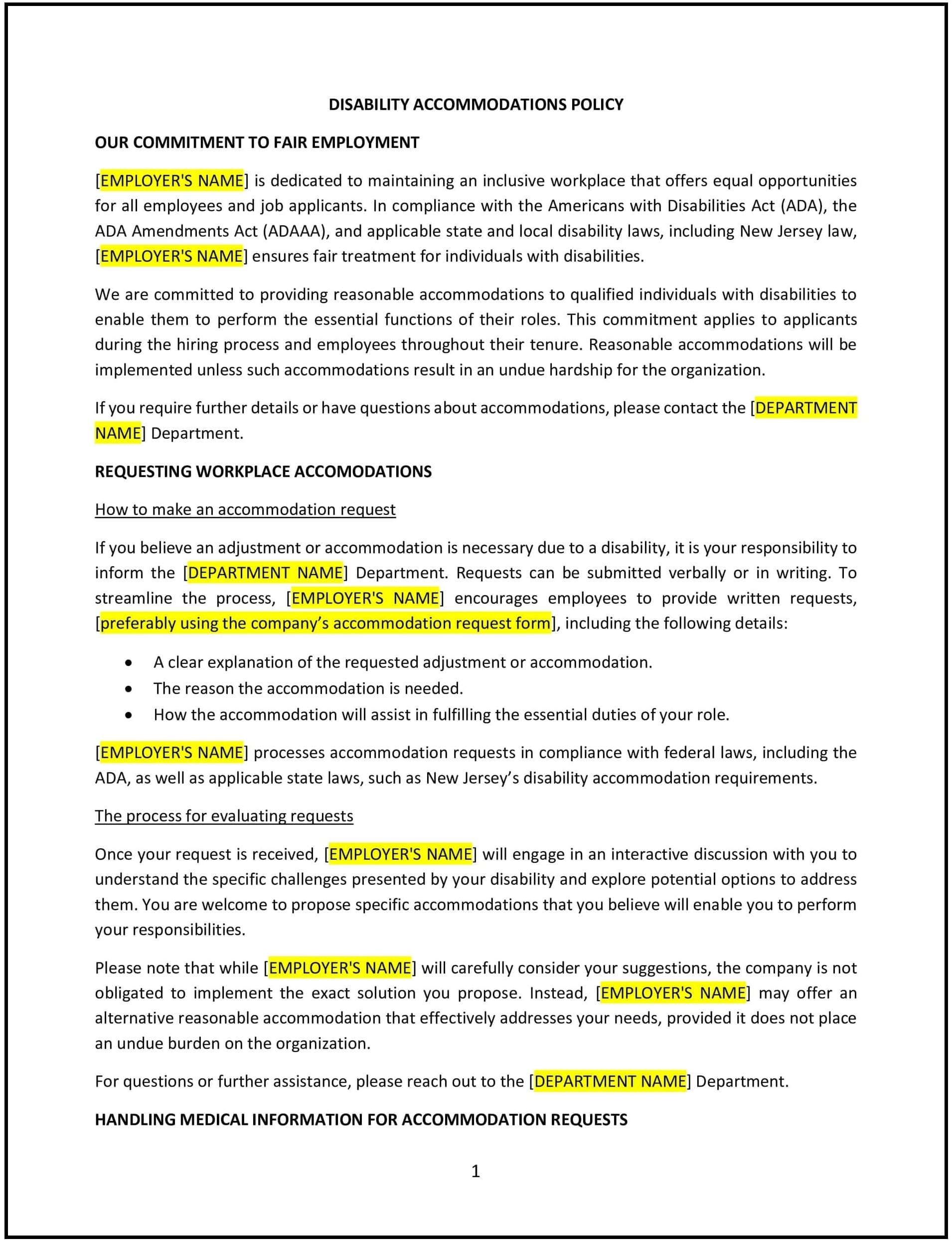Disability accommodations (New Jersey) policy: Free template
Got contracts to review? While you're here for policies, let Cobrief make contract review effortless—start your free review now.

Customize this template for free
Disability accommodations (New Jersey)
A disability accommodations policy helps New Jersey businesses provide reasonable accommodations for employees and applicants with disabilities. This policy outlines the process for requesting accommodations, the responsibilities of both employees and employers, and how the business will evaluate and implement accommodations. It also reinforces the company’s commitment to an inclusive and accessible workplace.
By adopting this policy, businesses in New Jersey can support employees with disabilities while maintaining a productive and equitable work environment.
How to use this disability accommodations policy (New Jersey)
- Define reasonable accommodations: Specify that accommodations may include modifications to workstations, flexible schedules, assistive technology, job restructuring, or other adjustments that enable employees to perform their roles effectively.
- Outline the request process: Provide clear instructions on how employees or applicants can request an accommodation, including whom to contact and what documentation may be required.
- Explain the interactive process: Describe how the business will engage in discussions with the employee to identify effective accommodations based on individual needs and business operations.
- Address confidentiality: Emphasize that all disability-related information and accommodation requests will be handled confidentially and shared only with those involved in the decision-making process.
- Set expectations for evaluating accommodations: Explain that the business will assess each request on a case-by-case basis to determine feasibility and potential impact on business operations.
- Provide examples of accommodations: Offer common examples of workplace accommodations, such as ergonomic modifications, alternative work arrangements, or accessible technology.
- Outline employee and employer responsibilities: Clarify that employees should communicate their needs in a timely manner, while employers should explore reasonable options and implement solutions where feasible.
- Review and update: Regularly assess the policy to reflect updates in New Jersey laws, workplace accessibility standards, and business needs.
Benefits of using this disability accommodations policy (New Jersey)
This policy provides several benefits for New Jersey businesses:
- Supports workplace inclusivity: Encourages a diverse and accessible environment where all employees can contribute effectively.
- Improves employee retention: Helps employees with disabilities remain in their roles by providing necessary support.
- Reduces workplace barriers: Ensures employees have the tools and modifications needed to perform their job duties.
- Encourages open communication: Establishes a clear process for discussing accommodation needs in a respectful and supportive manner.
- Enhances productivity: Enables employees to work more efficiently by providing tailored support that meets their needs.
Tips for using this disability accommodations policy (New Jersey)
- Communicate the policy clearly: Ensure employees understand their right to request accommodations and how to do so.
- Train managers on accommodations: Provide guidance on how to handle accommodation requests and maintain confidentiality.
- Be flexible in identifying solutions: Consider a range of reasonable adjustments that support employees while maintaining operational efficiency.
- Monitor the effectiveness of accommodations: Regularly review accommodations to ensure they continue to meet employee and business needs.
- Review the policy regularly: Update the policy based on feedback, legal changes, and best practices for workplace accessibility.